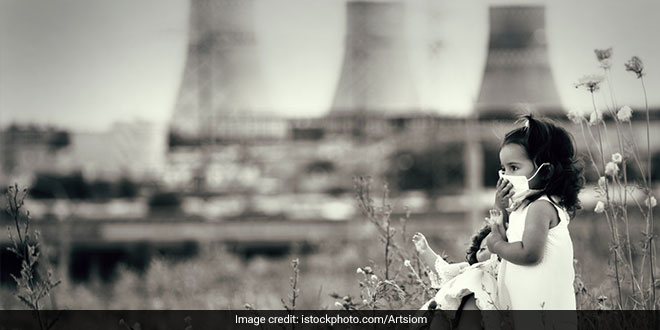Nairobi: Pollution makes her heart throb and goosebumps erupt. She has every right to feel this way. After all, the future of the earth involves teenagers like her. High school student Charlotte Wanja, 17, addressed the delegates from 170 countries gathered for the week-long UN Environment Assembly, the world’s highest-level decision-making body on the environment, in this Kenyan capital. In her emotional speech, she said,
It is a topic that makes my heart throb, goosebumps come out of nowhere and sometimes I get really emotional, but I have every right to feel this way. The future of our earth involves me. And my future children. And my children’s children.
“If nothing changes, pollution and global warming could become unstoppable,” said Charlotte, who would like to study environmental engineering. She further stated,
We have faith, we have truth, we have hopes, and we have visions. And we have hard work. These are the things that will dig us out of the situation we have gotten ourselves into. Doing little things in a great way, that’s how we’re going to do it. Plant that one tree, pick up that one plastic bottle, the little things matter.
Also Read: Environment Damage Behind 1 In 4 Global Deaths, Disease, Says United Nations
Charlotte and Shlok Sachdev, also 17, were invited to attend the Assembly after winning a Kenya-wide speechwriting competition on the theme “Our Earth in 2050”.
Charlotte is a student at the Alliance Girls High School in Kikuyu outside Nairobi. Shlok studies at Premier Academy in Nairobi. Shlok said,
I believe in a future where renewable energy is the new normal, where we cut down on fossil fuels and go electric, a future where we really learn to reduce, reuse and recycle.
Over 4,700 delegates, comprising tech experts, academics, scientists and civil society activists are here for the Assembly.
The theme this year is innovative solutions for environmental challenges and sustainable consumption and production.
Inspired by 15-year-old Swedish climate activist Greta Thunberg, hundreds of school and university students are observing a strike every Friday across the Europe to stand up for climate justice and demand action.
Also Read: Air Pollution: Raw Materials Behind Half Of Global Greenhouse Gas Emissions, Says United Nations
Thunberg, in her address at the UN climate change plenary in Poland last December, condemned global inaction in the face of catastrophic climate change.
A UN Environment report says the majority of the marine litter – between 60-80 per cent – is composed of plastic. Only nine per cent of the nine billion tonnes of plastic the world has produced has been recycled.
The overwhelming majority of plastics – comprising drinking bottles, bottle caps, food wrappers, grocery bags, lids and straws – are designed to be thrown away after a single use, ultimately ending up in landfills and polluting the environment.
Another student activist, Rebecca Freitag, 26, a UN delegate for sustainable development from Germany, told IANS that the youth should be given participation in environment talks as they comprise 25 per cent of the global population.
Before coming to the UN summit, she collected the plastic waste from roadsides of Kenya, which introduced the world’s toughest laws on single-use plastic bags two years ago, and got her dress stitched to spotlight solutions for the growing impact of plastics on the world’s marine environment.
NDTV – Dettol Banega Swachh India campaign lends support to the Government of India’s Swachh Bharat Mission (SBM). Helmed by Campaign Ambassador Amitabh Bachchan, the campaign aims to spread awareness about hygiene and sanitation, the importance of building toilets and making India open defecation free (ODF) by October 2019, a target set by Prime Minister Narendra Modi, when he launched Swachh Bharat Abhiyan in 2014. Over the years, the campaign has widened its scope to cover issues like air pollution, waste management, plastic ban, manual scavenging and menstrual hygiene. The campaign has also focused extensively on marine pollution, clean Ganga Project and rejuvenation of Yamuna, two of India’s major river bodies.




























